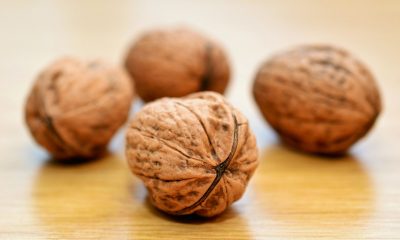There are many over-the-counter health supplements available in the market that claim they can lower cholesterol levels. But a new study has said six of these supplements are ineffective in doing so.
Supplements, including fish oil, garlic, cinnamon, turmeric, plant sterols, and red yeast do not lower “bad” cholesterol levels, the study published in the Journal of the American College of Cardiology said.
“If you’re taking over-the-counter supplements for heart health or for cholesterol-lowering, you should reconsider,” Luke Laffin, the study’s author and co-director of the Center for Blood Pressure Disorders in the Heart, Vascular & Thoracic Institute at Cleveland Clinic, said, as per HealthNews. “Unfortunately, many U.S. consumers believe cholesterol health supplements are safer than prescription medications and believe supplements are as effective, or more effective than statins.”
For the study, Laffin and his team recruited 190 adults, aged 45-65, for 28 days. The participants were divided into groups based on the drug they were given. The drugs included a placebo, fish oil, cinnamon, garlic, turmeric, plant sterols, red yeast rice, as well as a light dosage of 5 mg/day of statin medication, named Rosuvastatin.
It was found at the end of the study that average LDL or bad cholesterol reduction was observed in 37.9% of the volunteers receiving statin. Meanwhile, the effect on LDL levels in both the dietary supplements and the placebo were equivalent.
In other words, statin turned out to be superior to the six heart supplements in terms of its effect in lowering cholesterol levels.
However, statins do have some side effects, including headache, tiredness, weakness, digestive system issues, sleeping issues, and muscle pain, as per the outlet.
This study gains significance due to the fact that high cholesterol is becoming an epidemic in the U.S. High cholesterol is a precursor to heart disease, which is the leading cause of death in the U.S. Approximately, 7% of children and teens ages 6 to 19 have high total cholesterol, according to the Center For Disease Control (CDC).
However, the study is limited by its small sample size. Additionally, none of the participants suffered from severe cardiovascular disease, but 42% of the lot had high blood pressure, which is closely associated with high cholesterol.
Another recent study investigated the effects of hot and cold environmental stress on the heart.
“In both studies, we replicated real-world environmental temperatures the body might be exposed to and were able to show physiological responses that could help explain known seasonal variations in cardiovascular deaths,” physiologist Justin Lawley from the Department of Sport Science at the University of Innsbruck said.
















